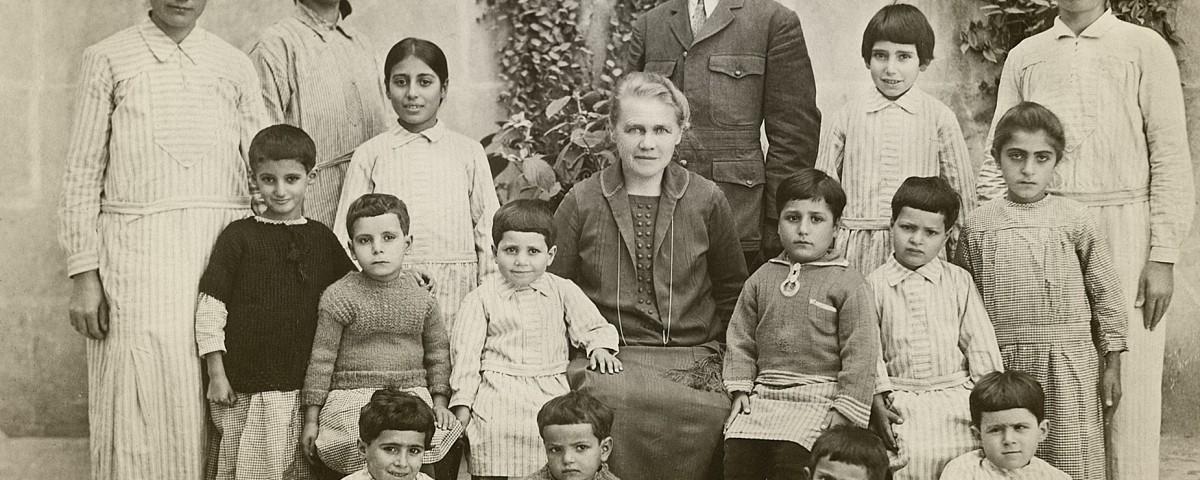
Bodil Biorn - An Unsung Heroine
"When we finished shooting the film," said Jussi Flemming Biorn, "The director, who had been an atheist all his life, said, 'I now have no choice but to believe in God.' I thought that it could not have been any other way - throughout the shoot there had been all sorts of lucky 'coincidences', even miracles, as if someone up above truly wanted this movie to be completed. Throughout production, it seemed as if we always ended up in the right place at the right time."
Norwegian Jussi Flemming was in Armenia to select Armenian music for his movie entitled They Call Me Mother, about his grandmother Bodil Biorn.
"There are people," said Jussi, "Who have been real heroes, and whose mission has required more effort and courage than the first people to the North or South Poles. One of them was Bodil Biorn, a person who embodied the ideals with which Norway has moved forward today."
In 1902, a Danish woman, Emsy Collet, founded a union called the Women's Missionary Workers, located in Copenhagen. Within this movement, schools were opened which preached the Bible, funds were raised for charitable purposes and - one of the main objectives of the union - missionaries were sent to Anatolia to work with the Christians there. Of all the organizations operating in that region at the time, this stood out as the smallest and the only one consisting solely of women.
Bodil Biorn was the only Norwegian of the twenty-two women sent to Western Armenia by the organization. She was born in 1871 in the Norwegian city of Kragero, into a family of wealthy ship owners. The building that is currently the Kragero City Hall used to be her family home. Bodil was one of the few girls who went to school at that time. Girls were simply refused an education then, but her paternal uncle was the principal of a school in Oslo and he admitted her there.
In 1909, after Bodil graduated from school, she was sent to Berlin to study music for two years. She was then supposed to marry and start a family, like all girls of her time. But Bodil chose a different destiny. Bodil trained as a gynecological nurse, joined the Women's Missionary Workers, and left for Western Armenia. The living and working conditions there were very different from those in her native city of Kragero. The Christians were living in conditions of constant oppression and persecution. In those days, when women had only just received the right to vote, Bodil opened orphanages, schools and free hospitals in Western Armenia, gathering a staff consisting only of locals, whom she trained. She spoke Armenian, Turkish, Arabic, German and English. Bodil worked in the Near East for more than thirty years.
She was in Western Armenia when the Armenians were massacred. But in 1917, Bodil was forced to flee from Eastern Anatolia to escape the Ottomans. She left for Norway, only to return just a year later to the newly independent Republic of Armenia. Four years later, she was forced to flee once more, this time to escape the Soviet authorities.
Bodil continued her missionary service in Syria. She lived with her son until her death and was especially close to her grandson, Jussi Flemming Biorn.
Bodil Biorn died in 1960, at the age of 90. After her death, Jussi had come up with the idea of both a book and a movie based on his grandmother's life. The significance of Bodil's work also lay in the fact that she had left journals and numerous photographs, which spoke in great detail not only of the massacres and the related tragedies - starving and emaciated orphans - but also of the daily life and culture of the people who lived in those times.
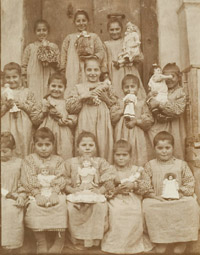 |
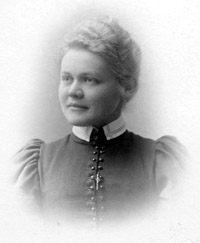 |
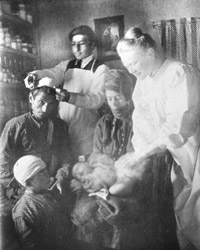 |
Jussi left his job as an advisor in the energy sector, found a director who agreed to shoot the film and a producer who was willing to cover the costs, and began shooting in 2004.
In the film, currently in post-production, Jussi facilitates a meeting between the past and the present. He is sent along the footsteps of his grandmother to Syria (Aleppo and the desert of Der-Zor), many regions of Turkey and Western Armenia. He tries to find the people who grew up as children in the orphanages established by Bodil, as well as other people she had mentioned in her journals.
The film has a number of aims. When Bodil fled from Western Armenia, she took with her to Norway an Armenian child, whom she said she had adopted in Mush. She only mentioned that the child, whom she had named Fritjoff, had had brothers and sisters, and that his father's name had been Petros Safaryan. Bodil had refused to give other details, and rumors started going around that the child, who had fair skin and blue eyes - resembling Bodil greatly - was in fact her biological son and not adopted. Fritjoff's son Jussi has tried to find his real roots - were they Armenian, or Norwegian?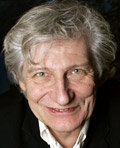 "The other aim is to focus not only on the tragic events, which is often the case in movies related to the Genocide," said Jussi, "I want to present the many cheerful stories with happy endings that Bodil had written about."
"The other aim is to focus not only on the tragic events, which is often the case in movies related to the Genocide," said Jussi, "I want to present the many cheerful stories with happy endings that Bodil had written about."
One of those stories was linked to an amazing coincidence which they had witnessed while shooting the movie. Jussi was telling a story from Bodil's journals to the Armenian community in Aleppo. It was about a family who had escaped from the Turks during the massacres by hiding in a well for a few days, without food or water. They had then managed to escape with the help of a Turkish officer and had fled to Syria. The family consisted of four girls, their father and mother, who was pregnant with a fifth child. After he completed the story, one of those present left and came back with someone else, who then told Jussi that that had been the story of his family and that he had been the unborn child at that time.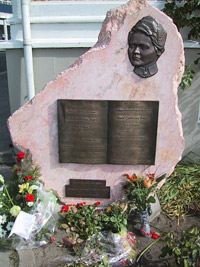 A memorial stone to Bodil was made in Aleppo. It now stands in her native Kragero, opposite City Hall. "They knew of Bodil's family in City Hall," said Jussi, "But they didn't know that their native city had borne a true heroine. People know very little about Bodil in Norway. She is buried in a very modest grave in Oslo. A year after the installation of the memorial stone, City Hall recognized the Armenian Genocide as a historical fact. This could be the first step for official recognition by Norway."
A memorial stone to Bodil was made in Aleppo. It now stands in her native Kragero, opposite City Hall. "They knew of Bodil's family in City Hall," said Jussi, "But they didn't know that their native city had borne a true heroine. People know very little about Bodil in Norway. She is buried in a very modest grave in Oslo. A year after the installation of the memorial stone, City Hall recognized the Armenian Genocide as a historical fact. This could be the first step for official recognition by Norway."
Another coincidence occurred when the crew were shooting in Gyumri. In 1921, Bodil had set up an orphanage in Gyumri, then Alexandropol, which had then been closed down four years later by the Soviet authorities. Jussi had used the photographs and journal descriptions to determine an approximate location of the orphanage.
"At one point, I just felt that we were very close and I asked the driver to stop the car. We stepped out and saw Ludwig."
Ninety-year old Ludwig knew the story of the orphanage well. He had grown up in an American orphanage and remembered that the children of Bodil's orphanage (around thirty people) had slept two to a bed, but had had no lack of food or clothing.
In Western Armenia, their expensive camera broke down when they were shooting in Van. "We had rented it in Oslo and didn't know what to do. If it had been in Istanbul, it wouldn't have been a problem to find a similar camera. But there was nothing we could do in this distant place."
The Kurd accompanying them came to the rescue. He found a small recording company that worked to provide video coverage of weddings. The company owner had a month ago coincidentally bought the same make of camera that the director had been using. It was very expensive and too complicated to use for weddings, so the man was delighted to rent it out to the foreigners.
"What was funny was that people would ask me in Western Armenia, 'Are you looking for gold?' as they would ask prospectors a hundred years ago. They wanted to become partners in the deal. I used to say, 'Yes, I'm looking for gold, but this is a different kind of gold.'"
They Call Me Mother will be shown as part of the upcoming Golden Apricot film festival. An exhibition of Bodil's photographs will also be organized simultaneously.
Jussi Fleming also presented Bodil Biorn's story in Yerevan, at a conference dedicated to the 40th anniversary of the establishment of Genocide Memorial.
 Videos
Videos Photos
Photos
Comments (1)
Write a comment